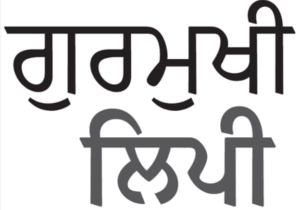Follow Me
PUNJAB WATER CRISIS IS DUE TO PADDY CULTIVATION

Paddy is the only culprit for Punjab’s water crisis. Punjab is a highly water stressed state due to paddy cultivation. Surface water available in the state is not sufficient to meet our agricultural demands and we are forced to pump ground water for paddy cultivation which adds to the water woes due to depletion of ground water at alarming rate. Nearly 170 lakh tonnes of paddy is produced in Punjab state every year and of this about 110 lakh tonnes is procured by Government of India which is subsequently transported to other states to meet their rice requirement. The rice produced in Punjab with huge quantity of state water resources is virtually being exported to other states in the national interest.
Paddy is not a suitable crop for Punjab climate as its cultivation is recommended in the areas having annual rainfall of more than 1500 mm, whereas Punjab annual rainfall is below 550 mm. Out of total state water requirement of about 44 MAF (million acre feet) for irrigation, nearly 28 MAF (64%) is drawn from ground water to meet our needs. From this we can imagine the shortfall in available surface water necessitating over dependence on ground water. Due to this, Punjab has the highest stage of ground water extraction of 172% (means 72% more drawl than recharge) amongst all states in the country.
DIRECT SEEDING MAY LEADS TO CHANGE
Paddy sowing this year is different than that in previous years in the Punjab. For the first time Punjab State Government has successfully come up to convince the farmers to transplant Paddy by direct seeding of rice (DSR) which will save ground water and reduce labour cost. State target of sowing paddy by DSR of 20 % of the total area under Paddy cultivation in the state is appreciable. Farmers are trying it and experience of this new method of sowing may get momentum over the next years on its good results.
The high yielding variety seeds of wheat and paddy are giving high yield because of their high dependence on water and fertilisers. The area under paddy in Punjab increased from 2.27 lakh hectares in 1960-61 to about 29 lakh hectares. The emergence of paddy as a major crop in the State led to heavy dependence on ground water which increased the number of tubewells to 14 lakhs. Free power to these agricultural tubewells further aggravated the ground water woes. The conventions method of irrigation of flooding the fields and overuse of water therein has also aggravated the problem. Another major concern is the high pollution due to paddy straw burning on its harvest in Punjab and Haryana which threatens the health of many in north region.
For last many years, the central and state governments have been advising the farmers of Punjab to cultivate alternative crops without giving any incentive or compensation. The successive governments in Punjab did not give any serious thought to diversification and saving the precious ground water. Absence of MSP for alternative crops has largely been responsible for promoting the wheat-paddy crop combination in Punjab, Haryana and Western UP.
WATER DEPLETION IS DUE TO FREE POWER SUPPLY TO TUBE WELLS
On policy matter, successive state governments ignored the importance of conservation of water resources and high overexploitation of water resources started in 1997 when Government started free power to tubewell to pump ground water. State constituted Johl committees in 2002 to promote diversification and address the ground water table issue. Committee recommended that a substantial area under paddy be shifted to other crops as paddy was mainly responsible for the depleting water table.
No action on this recommendation was taken. Then, state government constituted another committee to estimate the ground water resources in 2004 that ended without any recommendations. The first ever effective policy response came in 2008 when the state government through an ordinance prohibited the farmers from sowing of paddy before June 10th (dates notified every year by State as prevailing situation). This has helped in saving of some of the precious groundwater.
It is high time that both the Central and State governments rise to the occasion and take suitable policy measures to save Punjab State from the impending desertification. Punjab provides the much-needed food security to the country. There is dire need to have comprehensive agricultural and water policies with a focus on crop diversification, saving water and adopting new techniques to increase farm income.
ABOUT THE AUTHOR
The writer, PS Bhogal, retired as a Chief Engineer from, Water Resources, Punjab. He holds a masters degree in hydrology from international institute of hydraulics and environmental engineering, Delft, Netherlands. Currently he’s working as member of state expert appraisal committee for environment clearance of projects in Punjab. Views expressed are his personal.





One Reply to “PUNJAB WATER CRISIS IS DUE TO PADDY CULTIVATION”